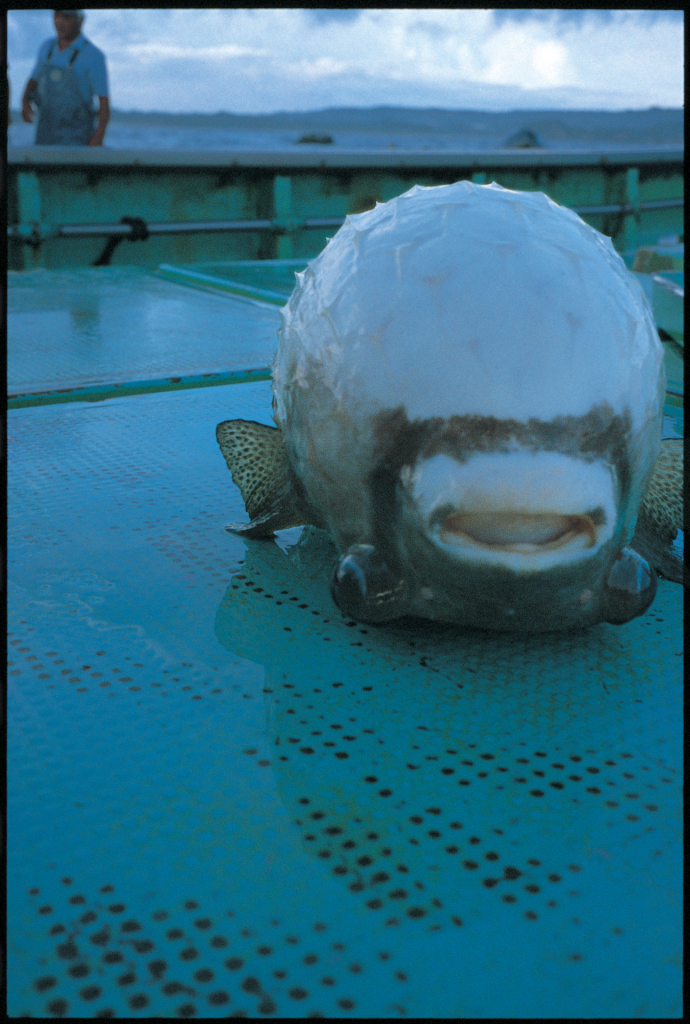“Oi, let out the rope more!”
“Reel in the nets!”
The star-filled navy blue sky begins to whiten with daylight, and before long the clouds start to turn a shade of peach. As daybreak’s performance unfolds, a flurry of frantic voices rise among us.

Our eight-man crew divides the chores among the two boats as we spread out nets the size of gymnasiums, then haul in the day’s catch to the deck. Ten years have now passed since I first came to my winter workplace as a fixed-net fisherman dreaming of large catches.
After catching the fish that will end up on dinner tables in Japan, we chop off the heads of the still living creatures, drain the blood and remove the innards. It may seem like a grim scene, but it’s very natural for humans to take the life of the fish to extend our own. There’s something primal about working up a sweat on the high seas, and casting nets each morning in the light of the rising sun has been a rewarding life.
Unfortunately, this has been a terrible year for fixed netting; it seems as if we haven’t caught a thing. The water hasn’t been as cold as usual and nets have been breaking apart during the recent string of warm winters. Catches have dwindled, and it’s not only fish. The number of turtles looking for the spill-off from fishing boats has dropped drastically as well. Fishermen, very much in synch with nature, are noticing something odd is happening.
One of my fellow farmer/fisherman friends has said for years, “The time is coming when we’ll have to grow or catch our own food to live.” This year’s fish count isn’t the only thing on which he’s keeping an eye; soaring wheat and corn prices may signal the time is coming sooner than we think. We often discuss and debate the impending extinction of whales and tuna, but could the same be said for humans?
I try focusing on “high tides” on the horizon, as negative thoughts get you nowhere. I go for a stroll along a rocky path near the fishery to clear my head and get closer to nature. “Path” is a bit of an overstatement as it was no more than a line between the cliff and ocean. The surrounding area is known for sudden rockslides, the instability due, perhaps, to rising water levels from global warming.
I’d already gone a long way down the path, so there was no sense in turning back. However, the rocks directly below and the instability of the path prevented me from easily traversing. Glancing up, I saw the mountain small rocks were bouncing down. Shouting likely would cause even more to fall.
Absorbed in my thoughts, I continued for an hour and a half and, even though nothing spectacular occurred, I was reminded of the grand scale of nature and her generosity. My spirits began to rise and, ever since, my nets have started yield more fish.





